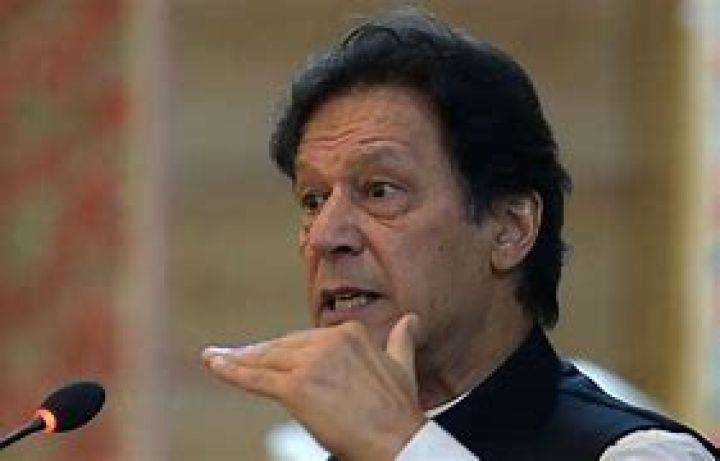If the Pakistani military let Prime Minister Khan complete five years, his poor performance will discredit the military as much as it makes him unpopular. And, if they remove him, the military will lose support among at least some of Prime Minster Khan’s followers, just like they lost their support among the followers of Prime Minister Sharif.
Arif Jamal
There is a feel of déjà vu in the air. We saw it in 1990, 1993, 1997, 1999, 2012 and again in 2017. In the first four cases, the National Assembly and the Provincial assemblies were also sent packing along with the elected and popular prime ministers under the military diktat while the Supreme Court simply justified the military’s unlawful acts. In 2012 and 2017, the military stayed in the background while Pakistan’s Supreme Court implemented the military’s plans. If the reports and analyses in Pakistan’s censored and highly controlled media are to be believed, the Pakistani military plans to use the fig leaf of the vote of no-confidence to remove another elected prime minister. Unfortunately, the opposition parties will shamelessly play the role of the military’s B team.
Most analysts and commentators in the Pakistani media concluded that Prime Minister Imran Ahmed Khan Niazi – Prime Mister Khan for short — is no longer acceptable to the military after he defied the army on the issue of replacing the ISI chief – Lt General Faiz Hameed – with Lt. General Nadeem Anjum in October 2021. They opined that the countdown to his dismissal had already started as he was no longer the favorite of the army. Since even before the 2018 general elections, Prime Minister Khan was seen as the military’s choice and protégé. PPP leader Bilawal Bhutto Zardari dubbed him as Mr. Selected – a description that has stuck — Prime Minister Khan lost this status after his tiff with General Qamar Javed Bajwa over the appointment of the ISI chief.
Prime Minister Khan was brought to power under what is popularly known as Bajwa Doctrine. The Bajwa Doctrine envisaged a puppet prime minister– supported by small political parties — for five years. The selected prime minister was supposed to safeguard the financial and business interests of the military. The same prime minister was to be reelected with two-third majority if he came up to the expectations of the Pakistani generals. Imran Khan was the only one who was ready to accept that role at that time.
The problem with Prime Minister Khan is that he is a narcissist who has no filters in his mouth. Many of his public statements — such as Germany and Japan sharing international borders — reflect his poor knowledge of the world and history while others ridicule the Pakistani military. In the pre-2014 days, he harshly criticized the military’s role in politics and talked of generals’ wet pants. He also criticized the military’s role in Baluchistan and expressed his sympathy with the armed Baloch fighters. However, by 2014, he decided to play in the hands of the generals and became the most obedient prime minister since 1985 until October 2021.
It cannot be said with certainty what role he chooses for himself if he is thrown out of power after a vote of no-confidence in the National Assembly. Will he silently go home and spend the rest of his life away from the public and media or take up proverbial arms against his former selectors? Most analysts and commentators think that he may try to raise a hue and cry but will go back to his palace at Bani Gala after he fails to politically mobilize the public, or he will be silenced by the military with force. Prime Minister Khan is unlikely to lead a popular street movement as he and his government are completely discredited in the eyes of the people. However, he has a lot to tell how the military undermined his government. Hence, he may opt to go another way – just start speaking how his government was undermined by the military.
Prime Minister Khan’s threat of becoming more dangerous if thrown out of power in his January 23 public Question-Answer session should not be taken lightly. If Prime Minister Khan and his government are discredited, so are his military selectors. In the last few years, the Pakistani military has become quite discredited – first because of Prime Minister Nawaz Sharif’s mild rebellion after his unlawful dismissal and, later, because of the dismal governance of the military choice. Prime Minister Khan may have lost most of his popular support, but he still has some support and can still play the victimhood card to an extent. Like an unguided missile, Prime Minister can unleash a verbal blitzkrieg we have never seen in Pakistani politics, denting the military’s image of a proverbial sacred cow.
Currently, the Pakistani military has very few options. If they let Prime Minister Khan complete five years, his poor performance will discredit the military as much as it makes him unpopular. And, if they remove him – even if through a vote of no-confidence – the military will lose support among at least some of Prime Minster Khan’s followers, just like they lost their support among the followers of Prime Minister Sharif. The Pakistani military is only to lose politically in the short term. In the long term, they can regain respect only if they retreat from politics and focus on their professional military duties like in a civilized country. Unfortunately, this is unlikely to happen. The loss of the Pakistani military is surely a gain for the people of Pakistan.



